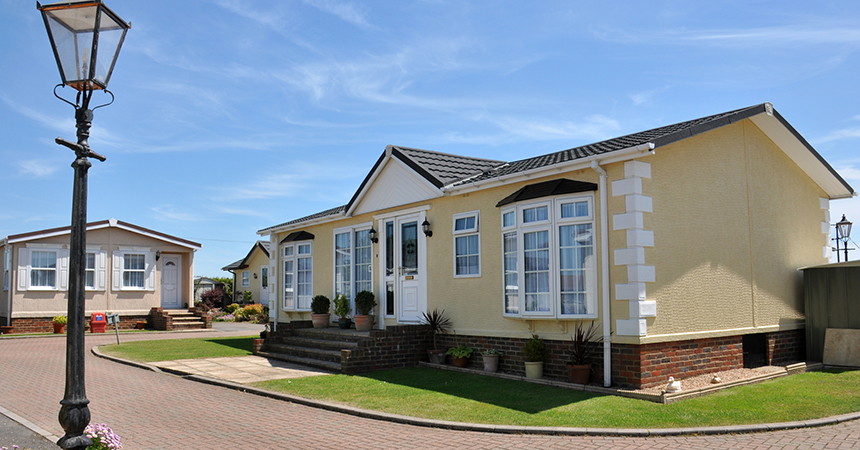In the ever-evolving landscape of sustainable living, the spotlight is increasingly turning towards alternative housing options. Mobile homes, once associated with a transient lifestyle, are now gaining attention for their potential for energy efficiency. As the world grapples with environmental concerns, understanding the energy efficiency of mobile homes becomes crucial. In this article, we delve into the various aspects of mobile homes to unravel whether they truly stand as energy-efficient dwellings.
1. Construction Materials and Design
Mobile homes, also known as manufactured homes, differ from traditional stick-built houses in construction materials and design. Generally built with lightweight materials, these homes are designed to be transportable. While this characteristic provides flexibility, it can also impact energy efficiency. The materials used in mobile homes may not have the same insulation properties as those in traditional homes, potentially leading to higher energy consumption for heating or cooling.
However, advancements in manufacturing have brought about improvements in insulation materials for mobile homes. Modern mobile homes often feature energy-efficient windows, better insulation, and improved ventilation systems. These upgrades contribute to minimizing energy loss and maintaining a comfortable interior climate.
2. Energy Efficiency Standards
Manufactured homes are subject to strict energy efficiency standards set by government regulations. In the United States, for instance, the Department of Housing and Urban Development (HUD) enforces standards for manufactured home construction. These standards include requirements for insulation, heating, cooling, and overall energy efficiency.
Manufacturers must comply with these standards, ensuring that the homes meet specific energy performance criteria. This regulatory framework has played a pivotal role in pushing the mobile home industry towards increased energy efficiency. As a result, modern mobile homes are more likely to incorporate energy-efficient technologies and designs, contributing to a smaller environmental footprint.
3. Heating and Cooling Systems
One critical aspect of a home’s energy efficiency is its heating and cooling systems. Mobile homes, like traditional houses, rely on various systems to maintain a comfortable temperature. The efficiency of these systems can significantly impact the overall energy consumption of the home.
In many older mobile homes, heating and cooling systems may be less energy-efficient compared to newer models. However, as technology advances, so does the efficiency of HVAC (heating, ventilation, and air conditioning) systems. Many modern mobile homes now come equipped with energy-efficient HVAC systems, which not only contribute to lower energy bills but also reduce the environmental impact.
4. Location and Climate
The geographical location and climate play a crucial role in determining the energy efficiency of any home, including mobile homes. Mobile homes are often associated with warmer climates, where the need for extensive heating is reduced. However, they are also found in colder regions, where insulation and efficient heating systems become essential.
In warmer climates, mobile homes can take advantage of natural ventilation and shading to reduce the reliance on air conditioning. In colder climates, proper insulation and energy-efficient heating become imperative. Therefore, the energy efficiency of a mobile home is not solely dependent on its construction but also on its adaptation to the local climate.
5. Sustainable Practices
As the demand for sustainable living practices grows, mobile home manufacturers are incorporating eco-friendly elements into their designs. This includes the use of recycled materials, energy-efficient appliances, and even the integration of solar panels. These sustainable practices not only contribute to energy efficiency but also align with the broader goals of reducing environmental impact.
The option to install solar panels on mobile homes is a notable advancement in making them more energy-efficient. Solar power can significantly offset electricity costs, and with advancements in solar technology, it has become a viable and sustainable energy source for mobile homes.
6. Affordability and Energy Efficiency
One of the primary attractions of mobile homes is their affordability compared to traditional houses. However, there has been a historical trade-off between affordability and energy efficiency. In an effort to keep costs down, some mobile homes may have been built with less emphasis on energy-efficient features.
Nevertheless, as consumer demand for energy-efficient homes rises, manufacturers are recognizing the importance of balancing affordability with sustainability. This has led to the development of more energy-efficient models that cater to a diverse range of budgets.
Conclusion
The energy efficiency of mobile homes is a multifaceted aspect that involves considerations of construction materials, design, regulatory standards, heating and cooling systems, location, climate, sustainable practices, and affordability. While there may be instances where older mobile homes lack the energy-efficient features of their modern counterparts, the industry is undergoing a positive transformation.
Advancements in technology, coupled with stringent energy efficiency standards and a growing awareness of sustainable living, are driving the mobile home industry toward a greener future. Mobile homes, when designed and constructed with energy efficiency in mind, can offer a comfortable and environmentally conscious living solution. As we continue to explore alternative housing options, mobile homes are proving that they have a role to play in the broader conversation about sustainable and energy-efficient living.
See Also:
- Exploring Affordable Housing: Mobile Homes Under $10,000 in Florida
- Embracing Sunshine and Serenity: Unveiling the Charms of Retiring in Florida
- Unveiling the Mobile Home Sales Industry in Florida: A Closer Look at Earnings for Sales Agents
- 10 Compelling Reasons to Invest in Mobile Homes
- Decoding Mobile Home Moving Costs in 2023-2024: A Comprehensive Guide


Nice mobile home roof repair blog. In MT case I use RV Roof Magic, it has good weather resistant properties, (it can withstand ponding water 365 days and has a high tensile strength that can contract and relax in extreme temperature fluctuations) It’s the best long-lasting sealant plus it’s cost-effective. It’ll give you a brand-new roof for a fraction of the cost. This RV rubber roof sealant not only fortifies the roof from harsh climate situation but also extend the Roof’s life span for 18-20 years along with pledging a 10-year warranty. extends the RV roof lifespan for 15-20 years.